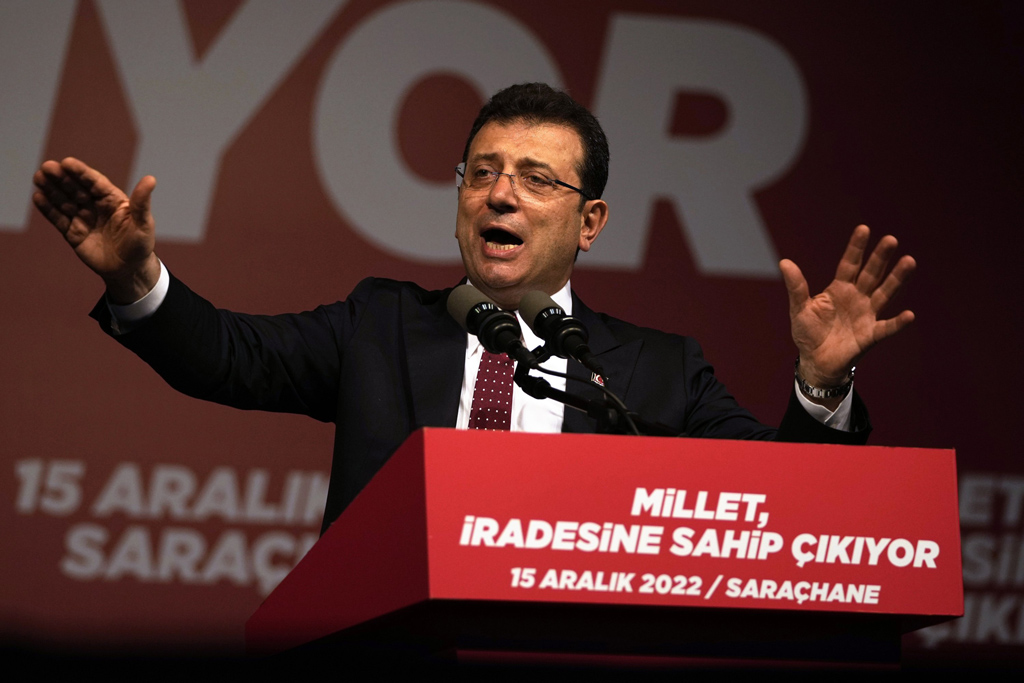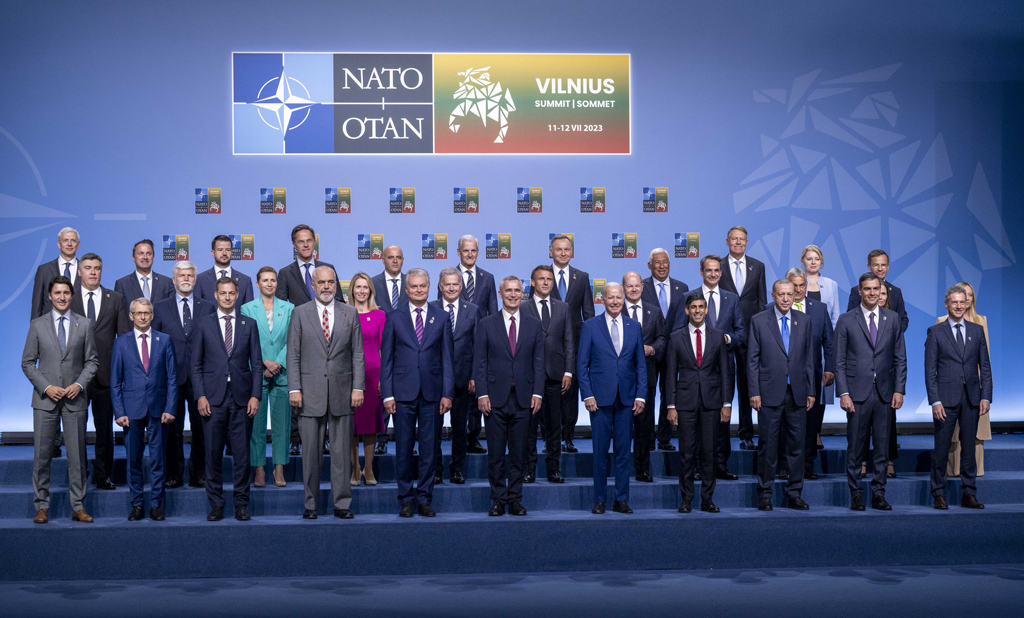A Turkish court
sentenced Istanbul Metropolitan Municipality Mayor Ekrem Imamoğlu to two years and seven months in prison for insulting members of the Supreme Electoral Board. The ruling won’t be final unless the second instance court and the Supreme Court of Appeals uphold it. Since either court could disagree with the verdict, Imamoğlu’s prison sentence and ban from politics are not in effect.
Nonetheless, this unexpected ruling has certainly escalated political tensions in Türkiye, where many count Istanbul’s mayor among the opposition’s potential presidential candidates. Although the ruling won’t be finalized by the 2023 elections, there is no doubt that it will come up frequently on the campaign trail.
Indeed, the opposition gathered in Istanbul’s Saraçhane district on Wednesday and Thursday to stand with Imamoğlu and criticize the verdict with reference to justice, the law and democracy.
That the Republican People’s Party (CHP) chairperson,
Kemal Kılıçdaroğlu, visited Germany on the day of the sentencing hearing and returned to Türkiye on a private jet, in turn, raised many eyebrows.
Another important development was Good Party (IP) Chairperson Meral Akşener answering Imamoğlu’s call to drive to Istanbul, where she hugged the mayor with great joy.
'Lynching campaign'
The ruling party responded to the verdict by stressing that the ruling was not final and subject to judicial review. On Thursday, Ömer Çelik, spokesperson for the Justice and Development Party (AK Party), accused the opposition of launching a “lynching campaign” against his party and spreading conspiracy theories to engage in “politics of exploitation” – despite adding that one could certainly criticize court rulings.
Recalling the AK Party’s struggle against the guardianship regime in Türkiye, Çelik claimed that the “table for six” was taking advantage of the judicial proceedings for political engineering: “We won’t allow them to target our president or our party as part of any attempt at political engineering. We are the party of those (citizens) that do not recognize any political power except the people’s will.”
Judging by the opposition and the ruling party’s statements, the emerging political climate in Türkiye will lead to intense and aggressive wars of words over “democracy” and “the people’s will.”
Campaigning for an “augmented” parliamentary system, the opposition hopes to generate political momentum for itself with the help of the Imamoğlu ruling. That verdict, which seems to have initially united the opposition, could lead to greater competition within the opposition bloc and the main opposition CHP. After all, Istanbul’s mayor has already started channeling the support he received in recent days for securing the opposition’s endorsement as their presidential candidate. Going forward, the CHP circles are likely to mount pressure on Kılıçdaroğlu, urging him to endorse Imamoğlu.
The main opposition leader promptly stated that the verdict would have no impact on the opposition bloc’s endorsement of a joint presidential candidate, yet the situation might spin out of his control – which would compel the “table for six” to select a candidate sooner than planned. Alternatively, the opposition bloc will stick to its list of priorities (to endorse a candidate later). That would cause the current debate to cool down. Either way, the “table for six” has encountered an opportunity as well as a challenge.
In the media, those commentators seeking to help Imamoğlu gain momentum have been comparing his current situation with
President Recep Tayyip Erdoğan’s experience as the mayor of Istanbul in the 1990s.
I believe, however, that there are more differences than similarities between the two situations. The nature of the court rulings, the country’s political circumstances, their personalities and their management styles are completely different.
In other words, history does not repeat itself. It plays out differently at every turn. Imamoğlu stands to write his story. It remains to be seen how that story will look.
[Daily Sabah, December 17 2022]








